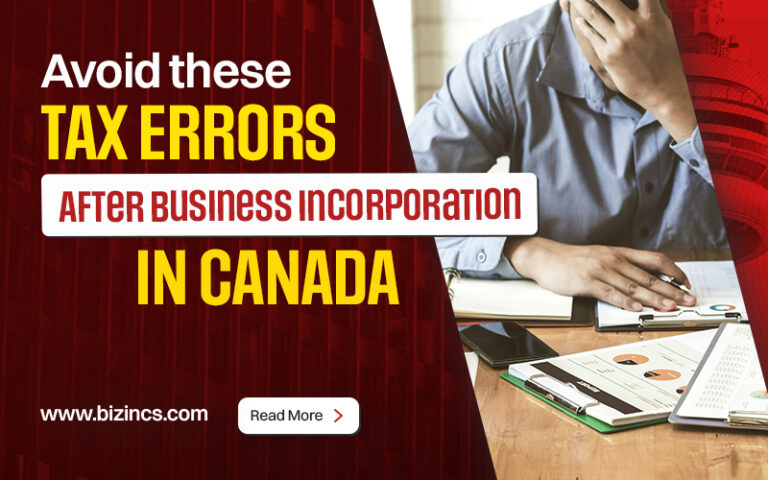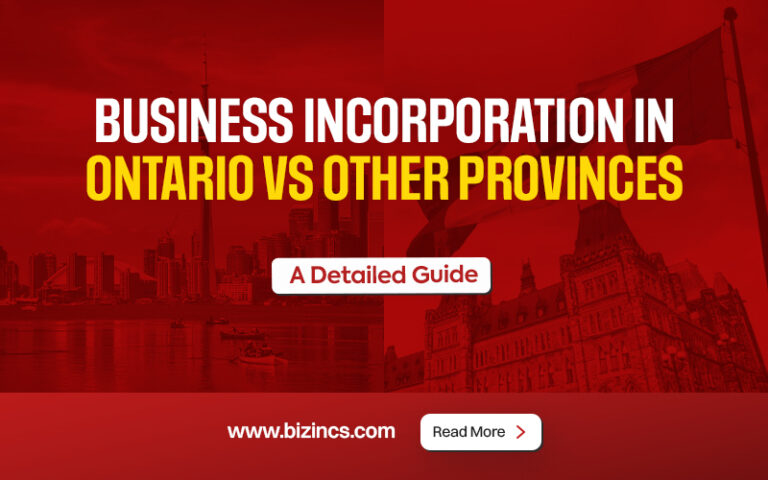What Licenses Do You Need to Start a Business in British Columbia?
Starting a business in British Columbia offers a huge opportunity, but let’s go through the legal requirements first. A local business license and provincial permits are essential requirements. Fulfilling them ensures your business runs smoothly and avoids any potential penalties. Whether you’re starting a home-based business, retail store, or consulting firm, proper compliance sets the foundation for success.
This Bizincs guide will help you navigate the types of business licenses, how to obtain them, and ensure you’re fully compliant across British Columbia.
Step-by-Step Procedure to Obtain Permits and Business License in BC
Before getting into the actual details, here is a set of steps that will help you secure business licenses in BC. These steps will ensure that your business is legally compliant at all levels, including provincial, municipal, and federal.
Step 1: Define Your Structure and Business Activities
- Choose Your Legal Structure: Sole Proprietorship, a Partnership, or a Corporation. This will affect liability, taxation, and licensing.
- List Your Main Activities: This may include selling, providing services, or food. These determine whether you will need sector-specific permits..
- Determine your jurisdiction (home-based, city-based, or inter-provincial): This helps clarify zoning requirements and local approvals needed.
- Consider future growth (hiring staff, physical expansion): Impacts long‑term licence planning.
Step 2: Register Your Business and Obtain a BN
- Reserve your business name through BC Registries (NR number valid for 56 days): This protects your chosen name while you complete the setup process.
- Register business structure (CAD 40 for proprietorship/partnership or incorporate online): Legally establishes your entity.
- Register for a Business Number (BN) from CRA: Required for GST/HST, payroll, and import/export programs.
- Set up CRA tax accounts tied to your BN: Essential for remitting taxes and filing returns.
Step 3: Acquire Provincial Permits and Accounts
- PST registration is required in BC if you sell taxable goods or services through retail transactions.
- The WorkSafeBC account (for employees) ensures workplace safety compliance and coverage.
- Employer Health Tax (if payroll exceeds the threshold is a provincial payroll tax requirement.
- Sector-specific permits to start a business (e.g., food, liquor, cannabis) are required based on industry regulations.
Step 4: Obtain Municipal Licences and Approvals
- A business licence from the city government is mandatory to operate locally, even home-based.
- Zoning compliance approval ensures your location is legally designated for your activity.
- Building and signage permits (as needed) are required for renovations or visible branding.
- Health inspections (food services) are mandated for any establishment serving or preparing food.
Step 5: Complete Federal Registrations (If Needed)
- A GST/HST account through CRA is necessary for businesses with over $30,000 annual revenue or those wanting to claim input credits.
- A CBSA import/export account is necessary for trading goods across international borders.
- Industry-specific federal licences (e.g., aviation, broadcasting, cannabis): required for regulated sectors at the federal level.
Check Out: Choosing the Right Legal Form for Your Business in Canada
Using Government Tools to Streamline the Licensing Process
Starting a business in BC is easier when you use the tools and resources provided by the provincial government. These platforms simplify finding the right permits, licenses, and regulatory steps for your business.
- BizPaL Online Tool: Just enter your business type and location to get a customized list of the permits and licences required.
- BC Registries and Online Services: This platform lets you reserve a business name, complete your registration, and manage corporate filings.
- Small Business BC Resources: Offers guides, webinars, and checklists to help navigate business startup and compliance.
- OneStop Business Registry: Lets you register for multiple provincial services at once, like PST and WorkSafeBC.
- Business and Economic Development Offices: Municipal offices often offer free consultations to help you understand local requirements and supports.
Check Out: How to Register a Business in Ontario: Step-by-Step Guide
Key Compliance Considerations for Canadian Small Businesses
Being active also requires avoiding the pitfalls of the essential small business compliance in Canada:
- Keep your records up to date (e.g., names, renewals, permits) with the help of digital tools for scheduling deadlines and storing documents.
- Renew licences annually to prevent interruptions of service or fines at the municipal and provincial levels.
- Keep your business info up to date (e.g., location, changes to ownership or structure) so that registries and licences remain valid.
- Keep an eye on adjustments to fees and thresholds (e.g., PST, EHT, payroll), and meanwhile, ensure you are registered properly from the start.
- Stay up to date on regulatory changes in BC and Canada. Rules tend to evolve around cannabis, food safety, and online sales.
Conclusion
Acquiring the right licenses and permits in British Columbia requires establishing and methodically following the business path, from registering the business and tax accounts to applying for municipal and federal approvals. By going through the process and keeping on top of your renewals and records, you place your business on solid footing for legal success and its continued growth.
If you need an extra layer of assistance, Bizincs will take care of registrations, compliance reminders, and license reviews contingent on your requirements.
FAQs
Do I need a municipal business licence even if I work from home?
Yes. Almost all BC municipalities require a licence for home-based businesses to ensure proper zoning compliance.
What’s BizPaL, and how does it help?
BizPaL is a free government directory that helps you identify federal, provincial, and municipal licences based on your business details.
When should I register for PST and GST/HST?
Register for PST if you sell taxable goods/services in BC as soon as you start operations. Register for GST/HST once revenue exceeds CAD 30,000 or when you choose voluntary registration.







